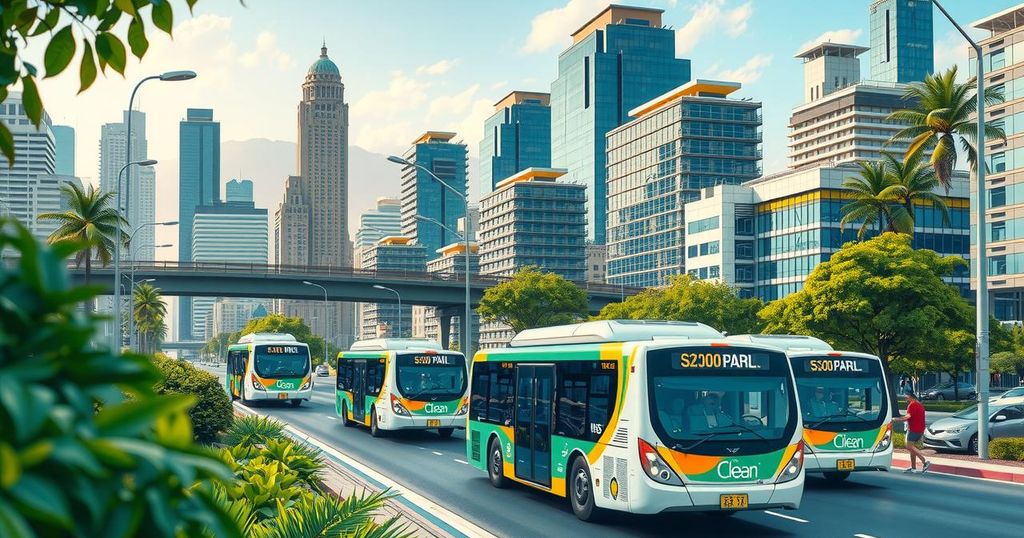São Paulo Mayor Sees Trade War as Opportunity for Brazil

São Paulo Mayor Ricardo Nunes argues that China-U.S. trade tensions present opportunities for Brazil, particularly in clean energy and urban development. The city plans to electrify its bus fleet and has made significant investments in surveillance technology. Key partnerships with Chinese firms are integral to these initiatives.
São Paulo’s Mayor Ricardo Nunes sees a silver lining in the ongoing trade tensions between the U.S. and China. During an economic summit in Shanghai, he highlighted how these tensions have created unique opportunities for Brazil, particularly in clean energy and urban development. Nunes emphasized that tariff disputes have left gaps in global trade, and Brazil plans to step in and seize these opportunities.
The city has ambitious goals, aiming to transition its entire bus fleet to electric by 2032, with strong support from Chinese firms like BYD. Nunes mentioned the importance of partnerships with companies in China to fund and support this electrification initiative and secure significant financing.
With over 25,000 AI surveillance cameras from Chinese tech firms already operational, São Paulo has made strides in public safety, capturing more than 1,000 fugitives in just half a year. The collaboration extends further as the city seeks to negotiate a 100 million yuan credit line with Bank of China to boost its electric bus project.
This interplay between international trade and local initiatives illustrates a broader trend where Brazilian cities are leveraging geopolitical shifts to advance their urban modernization goals. The city’s upcoming projects that rely on Chinese technology reflect not only a response to trade conditions but also a commitment to sustainable urban development.
Overall, São Paulo’s efforts in harnessing clean energy solutions positioned alongside urban upgrades depict a strategy that aims to turn trade challenges into beneficial partnerships. The Mayor’s statements underline a proactive approach to engaging with international markets during a time of economic uncertainty.
In conclusion, São Paulo’s Mayor Ricardo Nunes views ongoing U.S.-China trade tensions as a chance for Brazil. By capitalizing on these trade gaps, the city aims to advance its public transit electrification and safety programs. Collaborations with Chinese firms like BYD and leveraging financial services from Bank of China are central to this strategy, ultimately leading to an enhanced urban development agenda.
Original Source: www.caixinglobal.com




